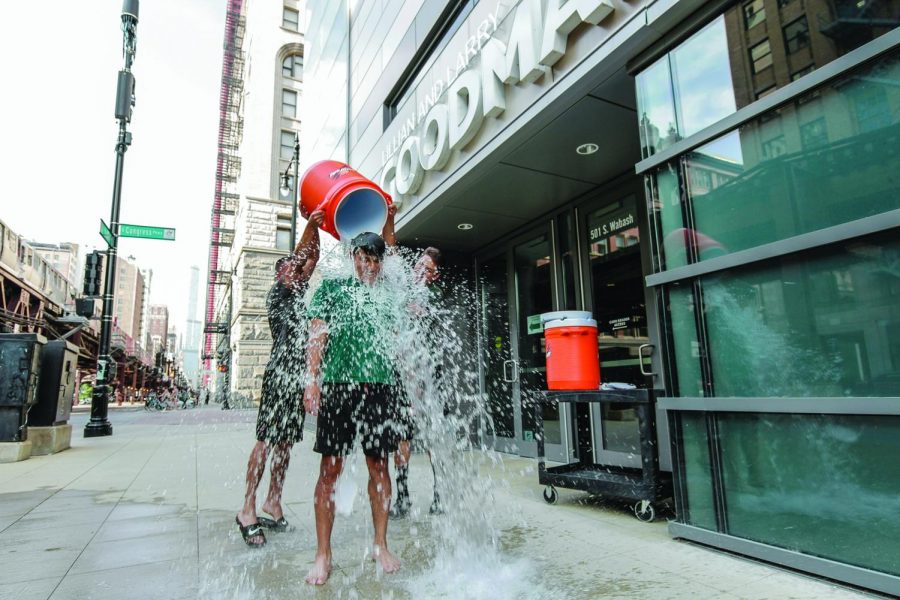ALS ice bucket challenge continues to pour
Moments after Alejandro Terrazas completed his ice bucket challenge, soccer teammate Jesus Marquez steps up.
September 2, 2014
After being diagnosed with amyotrophic lateral sclerosis in 2012, former Boston College baseball captain Pete Frates and several friends introduced the ALS Ice Bucket Challenge, a viral campaign that has taken off nationwide.
The ALS Association, a nonprofit dedicated to advocating for ALS research, has since received millions in donations. As of Aug. 27, the total is $94.3 million.
Social media platforms are being filled with videos of people taking the challenge, including celebrities such as Oprah Winfrey, athlete David Beckham and actor Mark Wahlberg.
“We have never experienced this level of visibility across the nation,” said Julie M. Sharpe, executive director for the ALS Association Greater Chicago chapter.
The Ice Bucket Challenge consists of people being nominated to either pour a bucket of water over their head or make a $100 donation to ALS research. Participants who opt for the bucket of ice water take a video of themselves fulfilling the challenge, post it to social media and then nominate a minimum of three other people.
Alejandro Terrazas, a midfielder for Roosevelt University’s soccer team, and several of his friends completed the challenge Aug. 20 outside of the Goodman Center, 501 S. Wabash Ave.
“The water was freezing, freezing cold,” Terrazas said.
Maryilene Blondell, development director for the ALS Association Greater Chicago chapter, said she thinks there are many reasons why individuals have accepted this particular challenge.
“It’s fun, easy, free and it’s for a worthy cause,” Blondell said.
In addition to fundraising, the challenge encourages people to educate themselves about ALS.
“More than half a million individuals who donated to the association and participated in the Ice Bucket Challenge have learned more about ALS and how it affects patients,” Sharpe said.
“We are thankful for everyone who has been doused with ice water and have donated to the fight against ALS,” Sharpe said.
The Ice Bucket Challenge has given the disease a visibility it has never had. Before the viral campaign, the disease had little awareness, Sharpe said.
The ALS association ran a campaign in conjunction with the 75th anniversary of Lou Gehrig ’s “Luckiest Man Speech” from April to July. It did well, but the amazing thing about the Ice Bucket Challenge is that it’s a grass-roots effort, started by a person living with ALS, she said.
“The ALS Association has never had a voice to share with others about the disease and the impact it has on patients and their families,” Sharpe said.
Every 90 minutes someone is diagnosed with ALS and someone else dies from the disease, she said.
“It’s always fatal,” Sharpe said. “Individuals end up losing the ability to walk, talk, swallow and eventually to breathe.”
Teepu Siddique, a neurology professor at Northwestern University, said patients are reliant on technology to survive.
It’s a disease that robs you of your autonomy and dignity, Siddique said. The search for an answer is slow due to limited resources.
“I think we know how to find a cure, but we just don’t have the resources to do it fast,” Siddique said. “We have identified the basic molecule mechanism. But we have to find a way to use that information to test for medications and drugs.”
The ALS Association won’t lose heart despite the lack of progress, Blondell said.
“The new findings will help us get closer to [a cure],” Blondell said. “The money being received will help us continue our research.”








